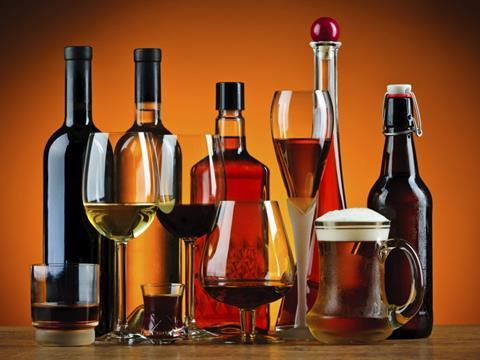
The Welsh government has revealed plans to legally enforce minimum unit pricing for alcohol.
Public health minister Rebecca Evans has introduced a Bill before the Welsh Assembly, which, if passed, would make it illegal for retailers to sell booze at low prices. It would “make an important contribution to improving health outcomes, by putting prevention and early intervention at the heart of our efforts to reduce alcohol-related harm” she said.
Under the proposed law, prices would be decided by multiplying strength by volume by a minimum unit price (MUP) - which is yet to be decided. However, the Welsh government cited University of Sheffield research in 2014 claimed the introduction of a 50p minimum unit price on alcohol could result in 53 fewer deaths and 1,400 fewer hospital admissions in Wales per year, accounting for approximately £130m in savings over the following 20 years.
With a 50p MUP, a 440ml can of 6% abv cider such as Scrumpy Jack, containing 2.64 alcohol units, would be sold for no less than £1.32. A 13% abv 750ml bottle of red wine containing 10 units would have to cost at least £4.87, while a 70cl bottle of 40% abv whisky containing 28 units would come in at £14.
Increasing alcohol prices with this method provided “an effective and efficient” way of reducing harm, and would have little impact on moderate drinkers, said Welsh chief medical officer Dr Frank Atherton. “The most substantial effects will be experiences by harmful and hazardous drinkers, who are more likely to consume cheaper and higher-strength alcohol products.”
But Sara Jones, head of the Welsh Retail Consortium, called for more evidence that minimum unit pricing would make a difference to “the minority of drinkers who do drink excessively, given that its introduction may hit less affluent moderate consumers of alcohol whilst not necessarily having the desired impact on problem drinkers.
“We believe the right approach is to support a range of locally targeted partnership schemes that are properly evaluated and evidence-based,” she added.
And a spokeswoman for the Campaign for Real Ale said the move “penalises moderate and responsible drinkers while doing little to support those who have issues with alcohol abuse”.
Indeed, added Christopher Snowdon, director of lifestyle economics at the Institute of Economic Affairs: “One of the key assumptions is that heavy drinkers are more likely to reduce their consumption if the price goes up than moderate drinkers, and this just doesn’t have any basis in empirical research. ‘Heavy drinkers’ includes all alcoholics and dependant drinkers, and they are in fact much less likely to change their habits in the face of anything, including price rises. The economic evidence doesn’t support these assumptions.
“The reality is it will of course have some effect, probably on demand for alcohol, but probably not a huge effect. It depends on the size of the minimum price, but it will affect moderate drinkers more than it will alcoholics or indeed binge drinkers.”
He added: “There’s this myth that supermarkets are going to do really well out of this because they’re going to keep selling the crap stuff, but it will just be more expensive. That’s not going to happen. I think the crap stuff will just disappear from the shelves and what we now consider mid-range beer will then become the cheapest beer. Whatever is being sold at 50p a unit now, will be the bottom end of the market.”
Scotland attempt to introduce a 50p MUP has been in legal purgatory since it was passed in 2012, having faced a succession of challenges from the drinks industry. It is yet to be implemented, with the Supreme Court expected to deliver a verdict on the latest attempt to block it, by the Scotch Whisky Association, in coming weeks.







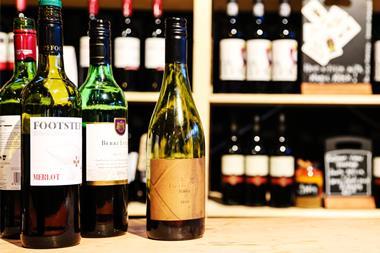
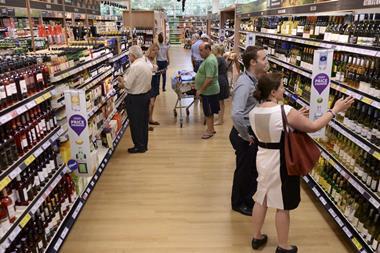
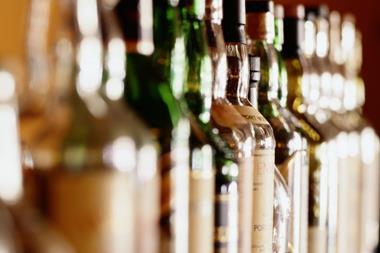
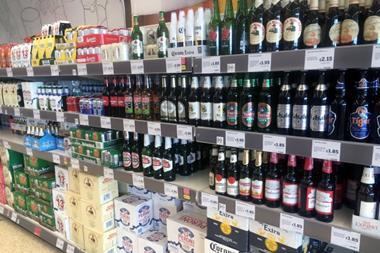
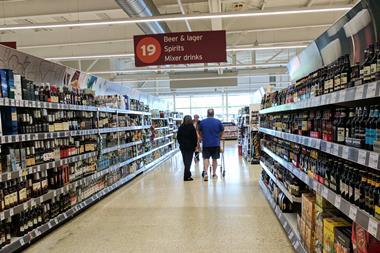
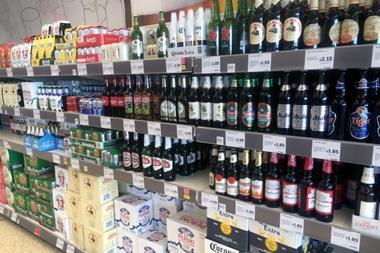






No comments yet